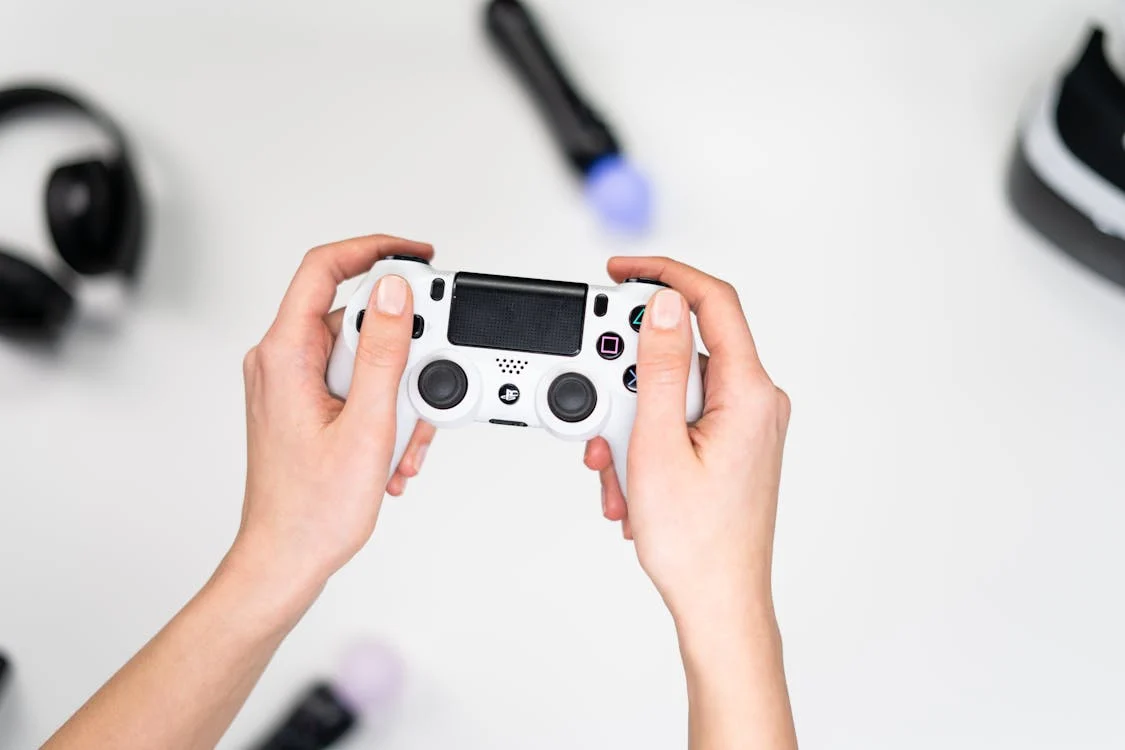As engrossing as video games are, they have become one of the dominant cultural forces of the modern age, growing into a more lucrative industry than any other art form and taking up a lot of time for those who enjoy the hobby. However, this rise to prominence in culture also means that people have been looking closely at how gaming affects those who participate in it, including concerns about addiction and isolation. However, we look at its real potential benefits a lot less often. That’s what we’re going to take a look at now.
Stress Busting
Whether you’re settling down to spend time with an old favorite or there’s a big triple-A release that you’ve been looking forward to, immersing yourself in a game can be a powerful way to disconnect from daily worries and enjoy some stress relief. While it might seem counterintuitive to some, especially when some games (like competitive online shooters) can seem stressful, most people are able to relax and enjoy an improved mood after a gaming session. Being able to set time aside for structured play that offers solvable challenges and rewards creative and skilled play offers real closure and a sense of fulfillment that can easily help you give yourself a mental reset.
Improving Focus
One of the reasons that gaming is so immersive is that it’s so effective at capitalizing your focus. Aside from being both visually and audially engaging, it responds to your feedback and requires it regularly, in most cases. Whether it’s keeping track of multiple enemies in a shooter or maintaining awareness of various resource levels in a strategy game, gamers learn to filter distractions and maintain concentration. This intense mental engagement trains the brain to focus on what’s relevant while tuning out the rest. While real-world activities might not be quite as immediately fun as gaming, this ability to hone down and focus can come in handy in real life, as well. As such, gamers have often mentioned finding it easier to manage tasks at work and engage in study sessions for longer.
Hand-Eye Coordination
While it may seem counterintuitive, given that gaming in a virtual space rarely involves using your hands in real space, it has been proven that it is a valuable way to improve your hand-eye coordination. While this skill is mostly developed early in life, most manual work, as well as using tools, typing, or even driving, requires that we keep this skill sharp. First-person shooters, racing games, and many action-adventure titles require players to coordinate visual cues with immediate motor responses. Games improve your brain’s ability to process quickly what’s happening in a given space and perform the split-second physical movements required to handle it correctly. Virtual coordination does indeed translate to real-world dexterity.
Strategic Thinking
Quick reflexes are important in a lot of games, but there’s another side of brain training to it, as well. In particular, a lot of games require strategic planning, long-term thinking, and the ability to make decisions under pressure. Whether you’re playing online chess against other players or AI or digging deep into the competitive scene of strategy games like Age of Empires, games can improve your ability to learn abstract rulesets, anticipate your competitor’s actions, and adapt your thinking to beat their strategy. Online platforms now offer opportunities to play with people from around the world, analyze your games, and improve in real time. This mix of critical assessment and prediction skills makes digital chess a powerful brain booster.
Think Faster
When you’re playing games, you don’t always have the time and leisure to strategize for as long as you want. Instead, you have to react quickly to new information, which can result in real benefits for your cognitive process speedings. This rapid-fire decision-making conditions your brain to process information more quickly. Over time, you learn to scan environments, evaluate options, and respond within seconds. This is especially true of online games like Overwatch and Fortnite that have you making decisions constantly in situations that are rapidly changing. This can translate to more rapid responses in real time, too, whether it’s problem-solving at work, being able to respond better in conversations, or even being able to act under pressure and in crisis situations.
Improve Memory
A lot of video games require strong memory skills from you. As mentioned, they can often require you to learn complex and abstract rulesets and then be able to recall that knowledge to make decisions within the logic of the game. Even for more story-based games, your active engagement in the narrative means that you’re a lot more likely to recall and apply information compared to more passive entertainment such as TV. Even action games contribute here. You may have to remember the position of enemies, recall the path through a complex environment, or memorize combo moves. These constant memory challenges can strengthen both working memory and long-term memory. Puzzle games, on the other hand, are more explicitly designed to improve your memory.
Boost Your Critical Thinking
In keeping with the point above, aside from having to remember rules and how different actions and options work within games, you also learn to analyze situations and make informed judgments based on the knowledge that you recall. This can improve your critical thinking across the board. Mystery-driven games, such as the Ace Attorney games, give you mysteries and have you play an active role in solving them, but even games that are as relatively simple as Tetris improve your critical thinking abilities. Being able to “game out” a given challenge, to explore the different options mentally before applying your thinking in real life, has significant benefits across all walks of life. Even in competitive games, critical thinking is key. You need to assess your opponent’s strategy, revise your approach, and learn from defeat. Over time, this trains the brain to think more flexibly and logically.
Enhancing Neuroplasticity
To get a lot more technical about it, many of the benefits of gaming can be explained through the lens of neuroplasticity. This is the brain’s ability to reorganize itself by building new neural connections. There are plenty of ways to build these connections, such as learning new skills, languages, and musical instruments. However, one of the easiest and most accessible ways to build this neuroplasticity is to play video games. Every time you learn a new game, master a new mechanic, or push past a previous limit, you’re engaging your brain’s plasticity. This continual novelty prevents mental stagnation and improves cognitive flexibility. One real-life application of this is that you would be much more easily able to switch from one kind of work activity to another.
The Importance Of Moderation
Hopefully, we’ve shown the many different ways that gaming can, indeed, benefit your mental health, fitness, and quality of life. The benefits are not insignificant, but neither are the risks that can come with it. Gaming addiction and the resulting isolation are significant problems in a society that is becoming increasingly online. The key is balance. Pair gaming with other healthy habits, choose games that challenge you, and reflect on what you’re learning from each session. When done right, gaming doesn’t just entertain, it can truly enhance your life.
There is no doubt that gaming has several potential benefits to your mental health and fitness, but it has to be approached mindfully for that reason. Like any tool, it’s about how you use it. Games that challenge your brain, test your skills, and offer meaningful engagement can absolutely serve as mental workouts.







Add Comment